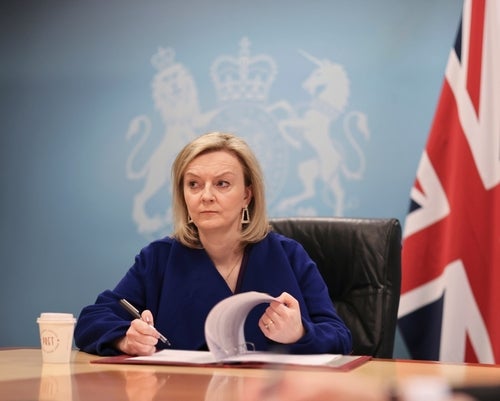
Last week, the UK’s new Prime Minister Liz Truss announced she would freeze energy bills for consumers at GBP2,500 (US$2928.62) per year average for two years starting from 1 October under the “energy price guarantee”. The plan is part of a support package that will replace the existing Ofgem energy price cap that was due to reach GBP3,549 from the same date.
Businesses and public sector organisations will have a new-six month scheme offering what is being described as “equivalent support”, according to The Guardian, however GlobalData apparel analyst Pippa Stephens tells Just Style she is sceptical about whether the energy plan will benefit the UK’s apparel sector.

Discover B2B Marketing That Performs
Combine business intelligence and editorial excellence to reach engaged professionals across 36 leading media platforms.
She says: “While the announced cap on energy bills as part of the plan will be a relief for consumers across the country, prices will still be much higher than prior years, as will the cost of other essential goods like food, causing discretionary income such as apparel to remain dampened.”
Stephens points out that this, alongside weak consumer confidence, will result in non-essential categories like apparel continuing to be hit hard, with apparel spend falling notably in Q4, to significantly behind pre-pandemic levels.
In the meantime, The Guardian suggests the business intervention will subsidise the wholesale price of gas. After the end of the six months, there is expected to be ongoing support for “vulnerable industries,” which is likely to include hospitality venues such as pubs.

US Tariffs are shifting - will you react or anticipate?
Don’t let policy changes catch you off guard. Stay proactive with real-time data and expert analysis.
By GlobalDataAt the time, Fashion-workers Advice Bureau Leicester’s (FAB-L) Tarek Islam made the point that garment workers are amongst the most vulnerable groups of people, many of whom have been living in poverty for many years. He said: “How much more poverty and pressure can they handle?”





